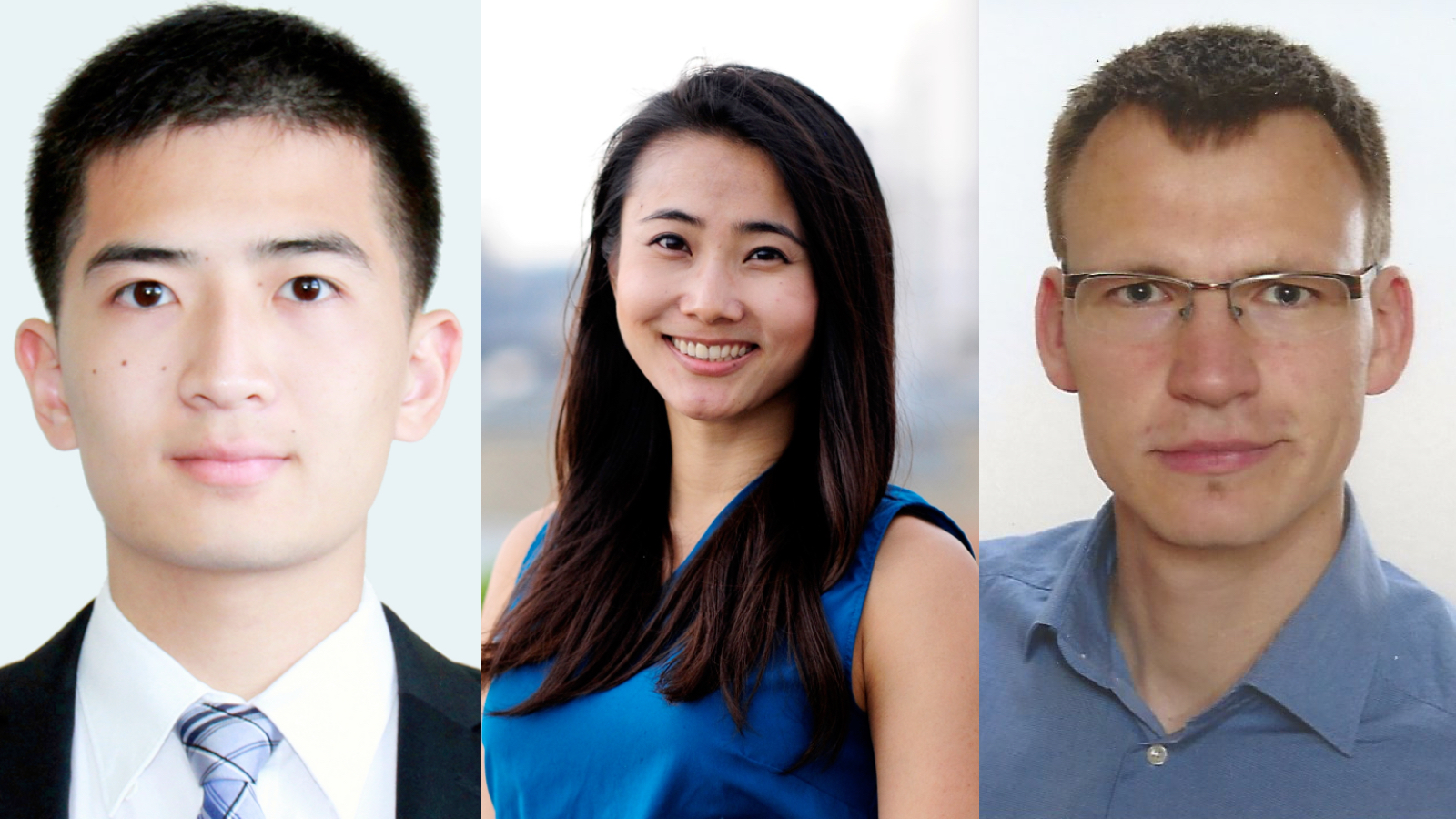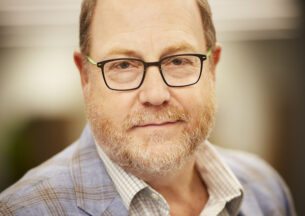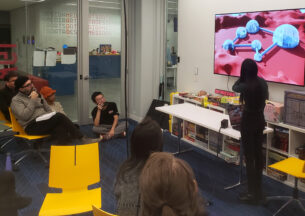Inaugural Group of UChicago Computer Science Siebel Scholars Named

Contact: Rob Mitchum
773-484-9890
rmitchum@uchicago.edu
Inaugural Group of UChicago Computer Science Siebel Scholars Named
The University of Chicago Computer Science department joined a select group of international programs as three University of Chicago masters students studying computation and public policy were named 2018 Siebel Scholars by the Thomas and Stacey Siebel Foundation.
Hannes Koenig, Joan Wang, and Tommy (Leping) Yu — second-year students in the Computational Analysis and Public Policy master’s program (MS-CAPP) offered jointly by the the Department of Computer Science and the Harris School of Public Policy — will each receive $35,000 from the Siebel Foundation for their final year of study and join a community of 1,100 current and former Siebel Scholars.
The three students are the first from a UChicago computer science program to be selected by the Siebel Foundation, which chooses students from an elite group of graduate programs in business, computer science, bioengineering, and energy science. Other computer science departments in the Siebel program include Carnegie-Mellon, MIT, Stanford and UC Berkeley. Previous UChicago Siebel Scholars have been students from the Booth School of Business.
“We are proud that the Siebel Foundation has included University of Chicago Computer Science among the graduate programs it supports through these generous awards,” said Michael Franklin, Liew Family Chair of Computer Science at UChicago. “These excellent students and the MS-CAPP program represent the expanding role of computing and data science at the University, pursuing new opportunities at the intersection of technology, scholarship, and society.”
In future years, UChicago CS Siebel Scholars will be selected from across the department’s programs, including the Masters Program in Computer Science and the Joint MBA/MPCS program with the Booth School. But the first three Siebel Scholars hail from the MS-CAPP program, a two-year program that builds foundational knowledge in computer science, statistics, and public policy analysis. Additionally, each student exercised and expanded their growing skill set through term-time assistantships, volunteer work, and summer internships.
“Joan, Hannes, and Tommy are emblematic of the MS-CAPP degree, having developed the insight to recognize and the technical skills to tackle the most salient issues of the day,” said Alex Engler, MS-CAPP Program Director & Lecturer. “Their passion for civic service, paired with their incisive computational thinking, make them uniquely poised for leadership in the 21st century.”
Koenig, a student from Germany with a background in online marketing, was attracted to this area of study after hearing a talk on predictive analytics for city services by Brett Goldstein, Senior Fellow in Urban Science at the Harris School. While pursuing his master’s degree, he has worked with the Center for Data Science and Public Policy and the Chicago Department of Public Health on a project that uses data to improve clinic retention of HIV-positive patients.
After studying economics and operations research as an undergraduate and working as a business analyst, Wang decided she was more interested in applying data analysis to evidence-based public policy. Through MS-CAPP, she has acquired technical skills in programming and machine learning, which she put to use in a summer internship with the Urban Institute, studying whether physical segregation also occurs in digital spaces.
Yu studied international business and finance as an undergraduate at the University of Hong Kong, but sought a shift to public policy and work in the developing world. MS-CAPP has provided him with opportunities to learn new data science skills and apply them to real datasets from social good organizations and government agencies. In one project, he built a machine learning pipeline for optimizing toilet waste collection in Kenya, then co-led a team of volunteers in Ghana that gave trainings in latrine construction.
“Hannes, Joan, and Tommy are incredibly smart and talented students,” said Anne Rogers, Associate Professor, Faculty Co-Director for MS-CAPP, and Director of Masters Programs in Computer Science. “MS-CAPP has helped them develop the ability to harness complex computational tools in service of addressing critical societal problems.”
About the Siebel Foundation
The Siebel Scholars program was founded in 2000 by the Siebel Foundation to recognize the most talented students at the world’s leading graduate schools of business, computer science, bioengineering, and energy science. Today, the foundation's active community of leaders serves as advisors to the Siebel Foundation and works collaboratively to find solutions to society’s most pressing problems.
The Thomas and Stacey Siebel Foundation, a nonprofit, public benefit corporation, was established as a private foundation in 1996. Its mission is to foster programs and organizations that improve the quality of life, environment, and education of its community members. The Siebel Foundation funds projects to support the homeless and underprivileged, educational and research programs, public health, and alternative energy solutions. The Siebel Foundation engages in strategic philanthropy; as such, it does not entertain grant requests, but invests in targeted highly leveraged programs and in projects it founds and operates. For more information, please visit www.SiebelFoundation.org.
About the UChicago Master of Science in Computational Analysis & Public Policy (MS-CAPP) Program
MS-CAPP is a rigorous two-year program offered jointly by the Department of Computer Science and the Harris School of Public Policy at The University of Chicago. The program gives students the opportunity to builds foundational knowledge in computer science, statistics, and public policy analysis and then go on to complete advanced coursework in econometrics, machine learning, big data methods, data visualization, and application development—all while learning how to apply these skills in the policy realm. For more information, visit capp.uchicago.edu.













